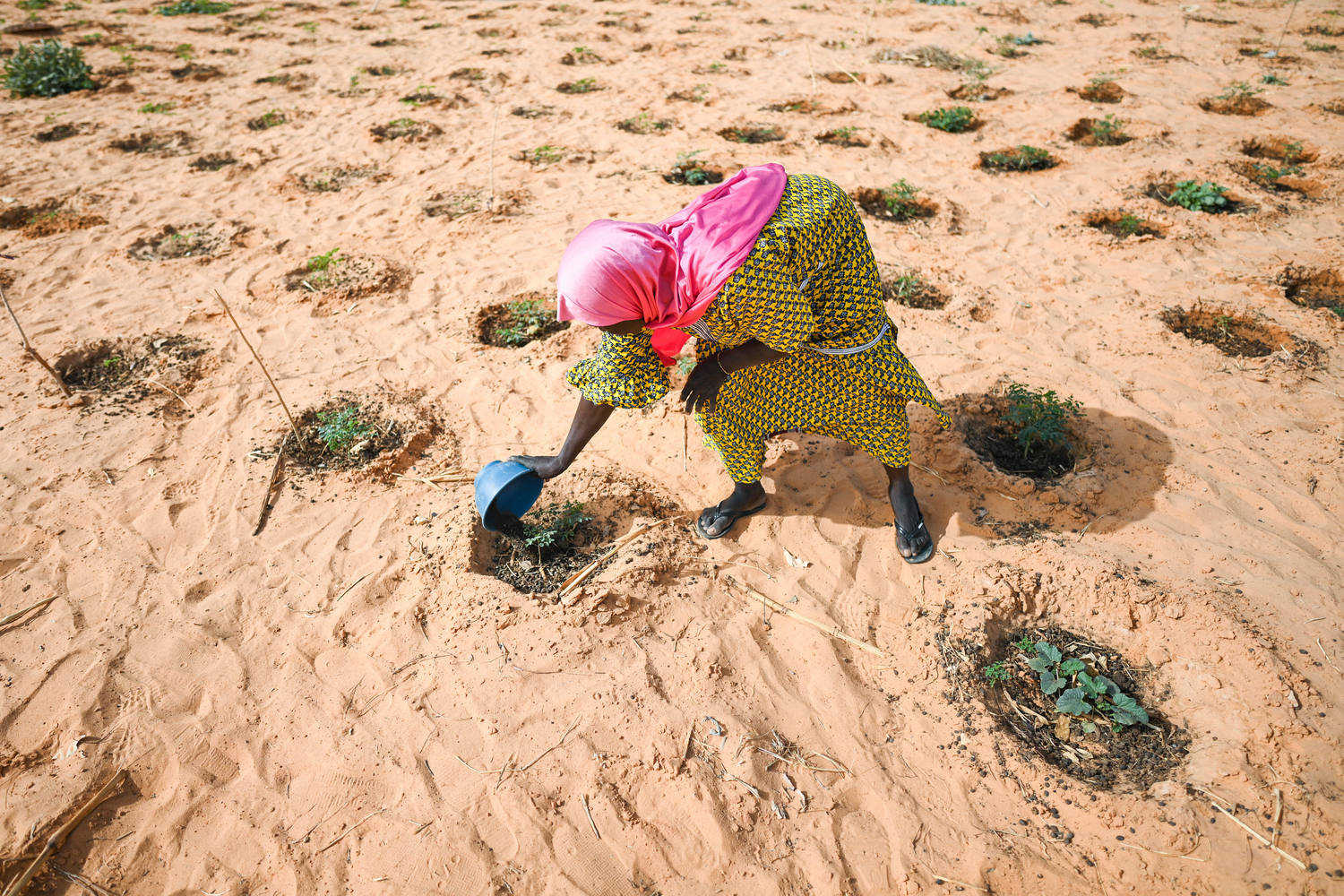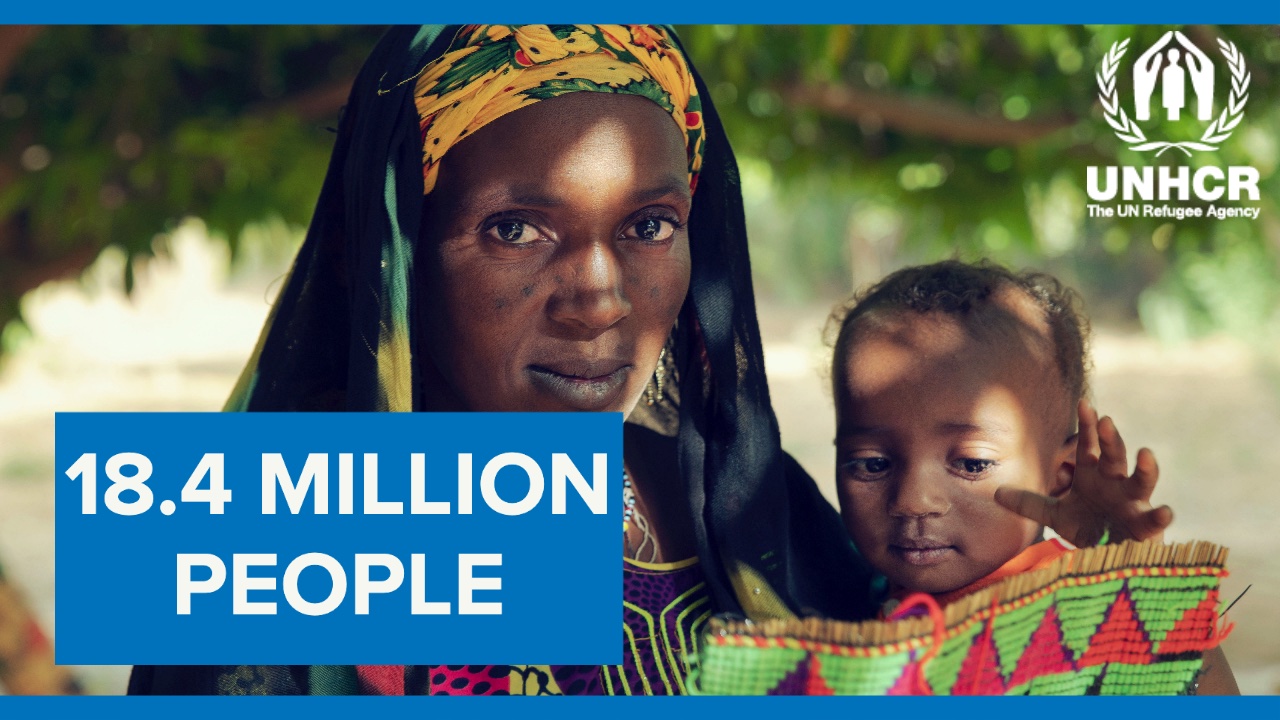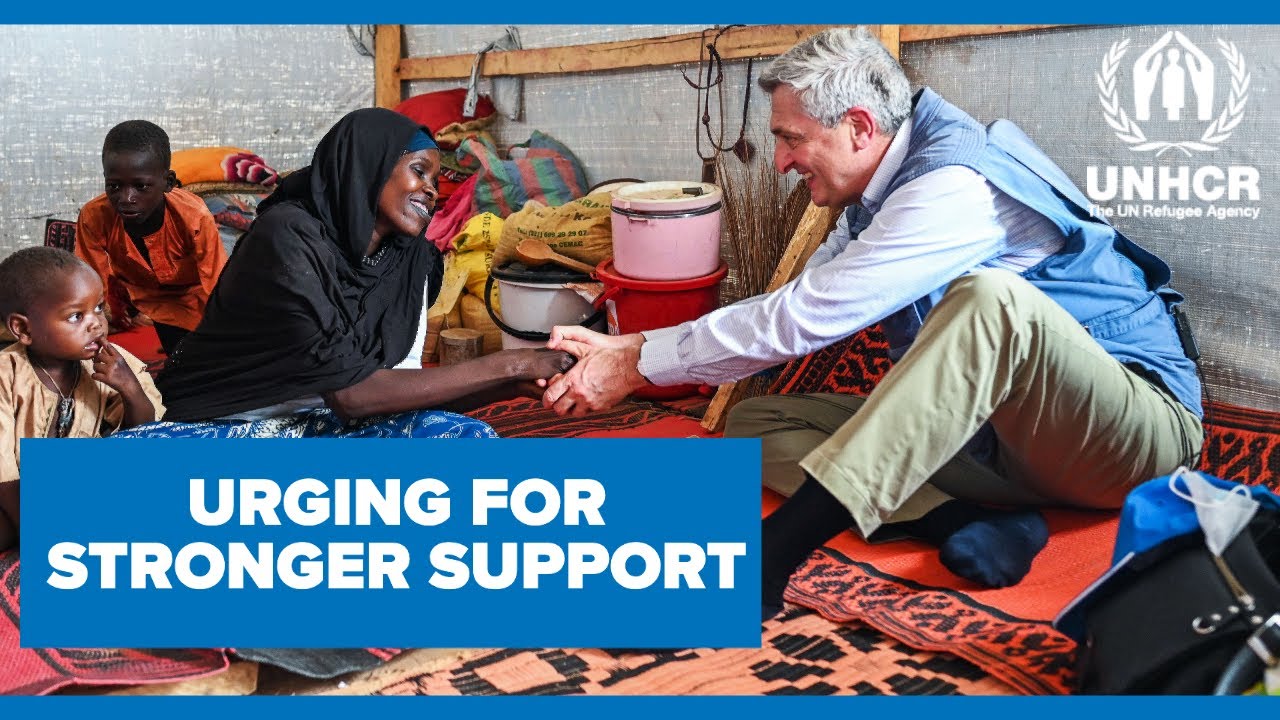New pipeline to bring precious water to Cameroon refugee camp
New pipeline to bring precious water to Cameroon refugee camp

MINAWAO CAMP, Cameroon, Dec 11 (UNHCR) - Every day, seven Médecins Sans Frontières trucks trundle up to the Minawao refugee camp in Cameroon's Far North Region with a precious but costly cargo - potable water.
The water is needed to meet the needs of the camp's almost 50,000 refugees from north-east Nigeria, who fled their homes and crossed the border into neighbouring Cameroon to escape the Boko Haram insurgency. In the current dry season, the rivers disappear and it becomes more and more difficult to find water reserves.
But that is set to change soon: earlier this month, UNHCR Africa Bureau Director Valentin Tapsoba and provincial governor, Midjiyawa Bakari, took part in a colourful launch ceremony for the construction of a pipeline that will carry water to Minawao under a joint project by the UN refugee agency and the state-run Camwater utility.
The 28-kilometre-long pipeline and distribution network will take four to six months to complete and will bring in water from a reservoir near the town of Mokolo to the sprawling Minawao camp, where water provision has always been a problem. MSF spends tens of thousands of dollars to bring in supplies daily.
Aside from the 49,968 Nigerian refugees in Minawao, the pipeline built by Camwater will benefit some 150,000 locals in villages along its route. Clean water will also help prevent or contain the outbreak of diseases common in the remote region, including cholera.
"The construction of this important infrastructure is, for UNHCR, recognition of the government and Cameroonian people's hospitality towards refugees," said Tapsoba, while noting how it will also benefit the local community.
Currently, 21 boreholes provide barely enough water to provide 14 litres per person per day compared to the recommended 20 litres per day. That is why MSF's help is vital. Camwater's director general, Jean Williams Sollo, believes the new pipeline will eventually bring water to some 200,000 people.
In another sign of UNHCR's commitment to helping members of host communities in need, UNHCR's Tapsoba had earlier in the day laid the foundation stone for a new primary school in the nearby village of Zamai.
Dozens of children lined up to watch the first brick of their new school put in place by the veteran UNHCR official. The building replaces ramshackle huts made from wood and palm leaves and will vastly improve the learning environment for these vulnerable youngsters. UNHCR believes education is vital for all children.
Cameroon is caught between two displacement crises - Nigeria to the north and Central African Republic to the east. The West African nation hosts some 65,000 refugees from Nigeria and 254,000 from Central African Republic. Fighting in Nigeria and cross-border attacks have also left more than 90,000 people internally displaced and in need of help.








